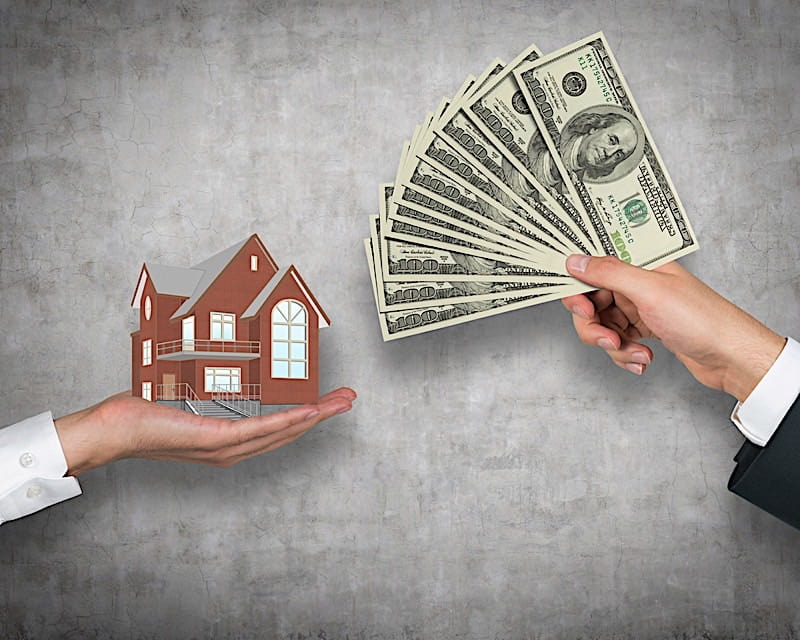The Top 5 Ways To Lower Property Taxes
By Than Merrill
Property taxes have become one of the most unwelcome expenses associated with homeownership, and for good reason: they are often times higher than they need to be. In fact, the information used to calculate many of today’s property taxes is out of date, and may subject homeowners to unfair expenses. It is worth noting, however, that property taxes aren’t set in stone, and homeowners who know how to lower property taxes may actually be able to lower their exposure to unfair rates. Make no mistake, there’s no avoiding property taxes altogether, but it is possible to lower them using some of the following strategies.
[ Thinking about investing in real estate? Learn how to get started by registering to attend a FREE real estate class offered in your area. ]

Get Your Property Tax Card
Property taxes are calculated using two fundamental indicators: the tax rate of the respective property and its current market value. The tax rate, otherwise known to some municipalities as the millage or mill rate, is entirely dependent on the local government. Local tax authorities within each municipality will determine the rate in which homes in their jurisdiction are taxed. The rate takes several factors into consideration, but it’s usually based on how much they feel is required to cover the homeowner’s fair share of important services. Needless to say, homeowners do not have a say in the degree to which their home’s tax rate is calculated. They do, however, have a say in the latter indicator: the home’s true market value.
The portion of the property tax calculation that accounts for the home’s true market value relies heavily on what is known as a property card. As its name suggests, the property card details all the information about the asset one would expect: the lot’s size, the exact dimensions of each and every room, and the number and type of fixtures located within the home. Each aspect of the home is diligently noted upon inspection and added to the property card. Local tax assessors will then use the property card to determine the final variable in the homeowner’s own property tax calculation.
It is worth noting, however, that appraisals don’t take place on a regular schedule, and most property tax cards are essentially out of date as a result. Therein lies one of the best opportunities homeowners may have to lower their property tax obligations. Any discrepancies between the property tax card and the current state of the home represent a chance to change the rate in which the home is taxed. If, for example, the property card suggests the home’s market value is actually more than it really is, the owner has a right to raise the issue with the tax assessor. At this point, the assessor has one of two decisions to make: either make the correction and/or conduct a re-evaluation.
Get An Independent Appraisal
Again, a homeowner may have no say over the tax rate imposed by its local municipality. However, a great deal of a home’s property tax bill is the direct result of its true market value, which is typically determined by a professional appraiser. More often than not appraisers are hired to offer an unbiased professional opinion on a subject property’s true value. Though their skills are more often suited for purchase-and-sale transactions, it’s entirely possible to hire an appraiser to determine whether the home’s current price point is appropriate. Appraisers will consider the home’s condition, location, and features to formulate a fair market price. Appraisals are usually ordered by banks, but there’s no reason a homeowner couldn’t hire their own independent appraiser, which could work to their benefit. While an appraisal should be unbiased, there is at least an outside chance an independent appraiser will value the subject property differently, which may or may not lead to a lower tax bill.
Appeal Your Property Tax Bill
There’s absolutely no guarantee that a homeowner will be able to lower their property tax obligations. However, investors who think they have tried everything to no avail may have one trick up their sleeves: litigation. That’s not to say anyone is getting sued anytime soon, but rather that homeowners have the right to file an appeal of their current property tax status. As the name suggests, a property tax bill appeal is essentially a request to have higher authorities familiar with the matter review the current data to come to a new decision. That’s an important distinction to make, as an appeal is far from guaranteed; it’s merely an attempt to have the local government reevaluate the homeowner’s current situation. As a result, a good appeal will attempt to dispute the home’s current market value. Any discrepancies between new data and what’s on the property card offers an opportunity for something to be changed.
The appeal process is generally handled entirely by an attorney that’s familiar with real estate tax laws. Their experience will allow them to navigate the entire process and appeal to the appropriate authorities. That said, the homeowner may need to take photos of the house and provide details on its current condition. The information the current owner is able to provide will serve as the foundation of the appeal; it’s what the reviewing board will use to determine if the property tax card is in line with the home’s current tax rate.
In the event the attorney is able to win their appeal and convince the reviewing members of the board that the property tax card’s most recent assessment is too high for the home’s condition, the rate on the home may be lowered. It is worth noting, however, that filing an appeal could also increase the rate in which the home is taxed. It is entirely possible for the board to feel their current assessment is too low, causing them to increase their rate. Therefore, homeowners need to exercise caution when using this particular strategy; It should only be used when the owner is confident the current tax card assessment is too high, and they can support their claim with evidence.
Check For Property Tax Exemptions
Homeowners looking to lower their property taxes need to be aware of the several exemptions that are made available to them. While property tax exemptions aren’t made available to everyone, those who qualify may be able to reduce their taxable obligations significantly. As a result, homeowners need to check with the state, county, or city agency who collects their property taxes to see if they are qualified to receive tax relief. Some of the property tax exemptions homeowners may be entitled to include, but are not limited to:
-
Homestead: Some states (not all) allow homeowners to use the homestead tax exemption to limit their exposure to property taxes. More specifically, however, the homestead tax exemption lowers the portion of the home’s value tax assessors use to calculate property taxes. As a result, property taxes only account for a portion of the home’s value, as opposed to the entire value, effectively lowering the property tax.
-
Seniors & Disabilities: A number of property tax exemptions are extended to seniors and the disabled. That said, each state has their own age, income, and residency restrictions, so it’s important to look at the exemptions made available to the public before assuming anything.
-
Military Veterans: A lot of states offer property tax exemptions to qualifying military veterans. Again, each state will coincide with different qualifications, but many veterans may be able to limit their exposure to property taxes.
-
Energy Incentives: While not an exemption in every state, there are those in which homeowners are able to exclude the value of certain green improvements from a home’s real estate assessment.
There are a number of exemptions made available to qualifying taxpayers across the country, not the least of which may help savvy homeowners lower their property tax bills. However, each state and municipality is different, so be sure to check with the authorities in your area before coming to any conclusions.
Talk to Your Neighbors
Homeowners looking to lower property tax bills should exercise every option at their disposal. Appraisals, appeals, and a little bit of research can all go a long way in convincing the local government to reassess the rate in which the home is valued. However, it’s not uncommon for the most successful strategy to be hiding in plain sight. In fact, it may literally pay to talk with the owners of comparable homes. Take a look at nearby comparables and generate your own data on the value of homes and the town’s evaluation results. With any luck, homeowners may find discrepancies that work in their favor. In the event comparables are associated with a lower home value, there’s a chance a reassessment is in order, and perhaps even a lower tax bill.
Summary
There is absolutely no way to get out of paying property taxes; that’s just a part of the homeowner process. However, there’s no reason today’s homeowners can’t dispute the rate in which their assets are being taxed. Many of the authorities responsible for levying property taxes on homeowners are relying on outdated information that can easily be disputed. Provided a homeowner is able to provide enough evidence that their home isn’t being taxed fairly, there is absolutely a chance to lower its property tax bill. Though it’s never guaranteed, learning how to lower property taxes is a valuable skill to have; one that could save homeowners a lot of money over the life of the home.
Key Takeaways
- While not everyone may be able to do so, learning how to lower property taxes could prove valuable at some point in the future.
- Learn how to avoid paying property taxes that are unfair by checking with your local authorities; they may be able to point you in the direction of a few valuable exemptions.
- Stop paying property taxes that are improperly calculated by finding discrepancies in your own property card.